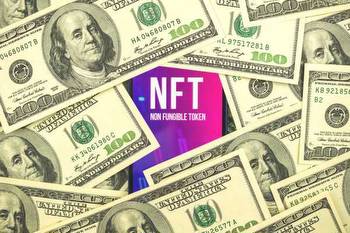Five U.S. states order halt to NFT sales by metaverse casino with alleged Russia ties

Regulators in five states simultaneously filed emergency orders Wednesday against a virtual casino they say has ties to Russia and that has been operating in the metaverse, a digital world where participants can interact with each other, purchase products and even gamble.
State law enforcement officials say Flamingo Casino Club's operators failed to disclose its Russian ties and claimed it had partnerships with legitimate businesses when it didn't. The civil filing represents a new and coordinated effort by state regulators to police some of what is going on amid the explosive growth of the metaverse, where innovation and speculation have also provided fertile territory for criminals engaged in alleged fraud, theft and deception.
State securities boards in Texas, Wisconsin, Kentucky, New Jersey and Alabama filed a 22-page emergency cease-and-desist order outlining what they allege are false claims by Flamingo Casino Club and requiring that it immediately halt the sale of its non-fungible tokens, or NFTs.
"The offering is simply a high-tech scam," the order said.
NFTs are blockchain-based digital assets that designate ownership of virtual art, music or, in this case, proprietorship of a metaverse casino to whoever holds the NFT. Moreover, every NFT has unique properties that cannot be replicated, proving its authenticity.
Investigators began scrutinizing the casino in March not long after it began operating and say they were ultimately able to trace the people behind it to Moscow.
In an exclusive interview, the lead agency's top official told CNBC the casino lured in hopeful investors with false promises.
"I was absolutely shocked," said Joe Rotunda, director of enforcement at the Texas State Securities Board.
Virtual concerts, poker tournaments and tennis courts are just a few of the perks listed on the organization's website. Flamingo Casino Club's website also told NFT holders they would receive 50% of the profits generated from the casino as passive income. It further enticed patrons by offering a chance to win exorbitant prizes such as Teslas and iPhones in its randomized lotteries, according to its website.
The casino also widely marketed its affiliation with a well-known gambling establishment, the Flamingo Las Vegas Hotel and Casino, to secure investors' trust.
But behind the fancy graphics, the promises of profits and the big-name backings was a scheme out of Russia to defraud investors that a team of state regulators unraveled, the order says.
Flamingo Casino Club is "intentionally failing to disclose its assets, liabilities, revenue and other financial information germane to its operations and the development and management of the metaverse casino," according to the order.
The order says that although the casino sells securitized NFTs, it failed to provide purchasers with fundamental information such as its physical address, phone number, or any evidence proving the people on its leadership team actually existed.
"You're talking about digital assets and anonymous individuals who are concealing their location," Rotunda said. "So once the money is transferred ... we may not be able to get it back, right? It goes into a black hole through the blockchain, and people may lose everything."
In addition to this murky money trail, the purported partnership with the Flamingo Las Vegas, a well-established casino located on the Strip, was also fabricated, Rotunda said. The cease-and-desist order says Flamingo Casino Club's "representations are false," and the Las Vegas casino denies any relationship.
But the phony partnerships don't end there, according to the order. Flamingo Casino Club touts affiliations with Yahoo and MarketWatch, but there's no evidence substantiating any relationship with these businesses, the order says.
"Flamingo Casino Club is not providing purchasers with any information reflecting any type of relationship with either Yahoo or MarketWatch," the order says, adding that the casino provided hyperlinks to press releases distributed to Yahoo Finance and MarketWatch.
In its promotional video, Flamingo Casino Club announced plans to build the virtual casino on the metaverse platform The Sandbox, but nothing's been built yet.
The casino's leadership team wrote on Instagram that it delayed purchasing digital land because of ongoing negotiations with Snoop Dogg, who owns portions of the Sandbox property it plans to build on, according to the order and the casino's own social media posts.
The order said the casino is "intentionally failing to disclose the status of negotiations for purchasing virtual land from Snoop Dogg" as well as "the anticipated or projected cost of purchasing the virtual land."
Through a series of subpoenas, regulators discovered that the IP address for Flamingo Casino Club's desktop computer and mobile device are registered to Moscow, further diminishing the chances of investors seeing any returns.
"Investors have to chase those ghosts to try to recover. And they're not going to recover if the money is going to Moscow," Rotunda said.
Additionally, Rotunda said that the casino operators started mobilizing Flamingo Casino Club right around the time that Russia invaded Ukraine and that they later told investors some profits from their NFT sales would be donated to Ukrainian victims.
"And they didn't just talk about how they were going to donate to Ukrainian civilians to one person or two people, they publicly proclaimed it," Rotunda said. "I haven't seen any money going to benefit Ukrainians."





































